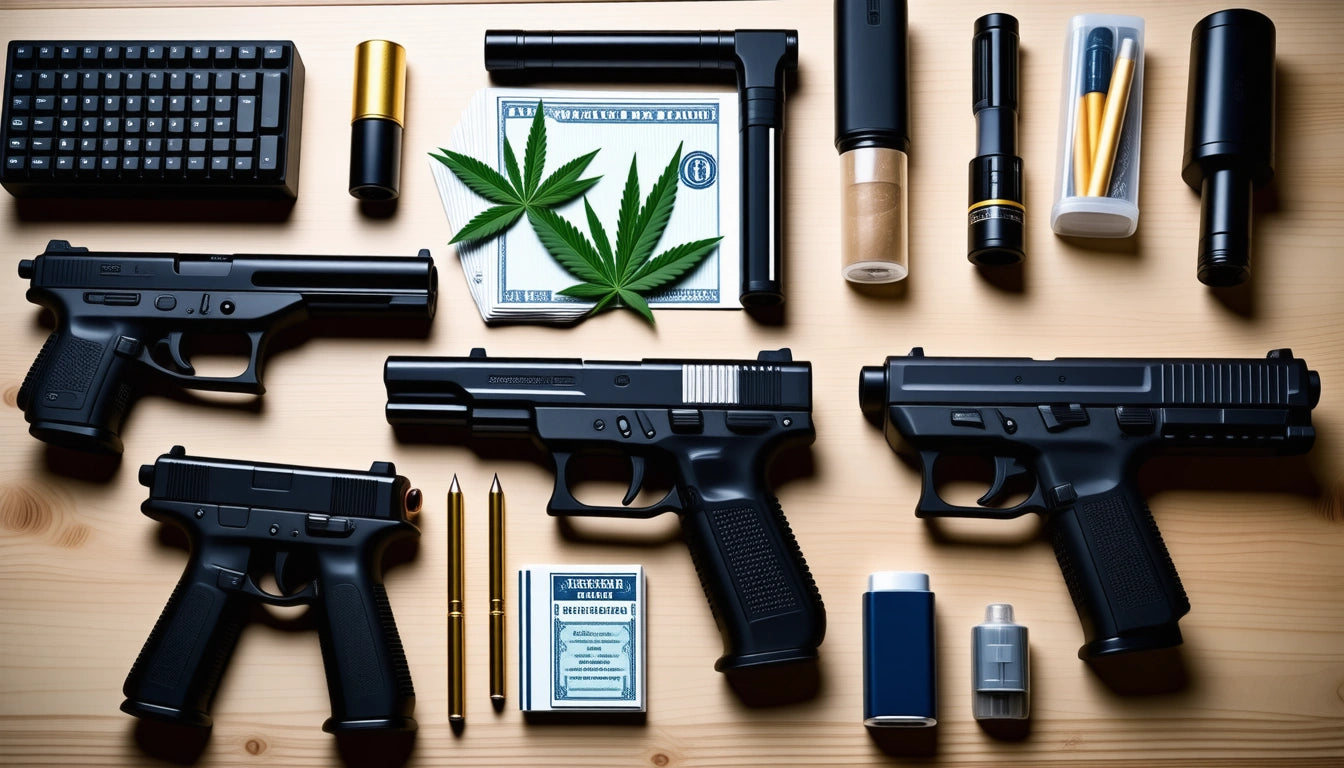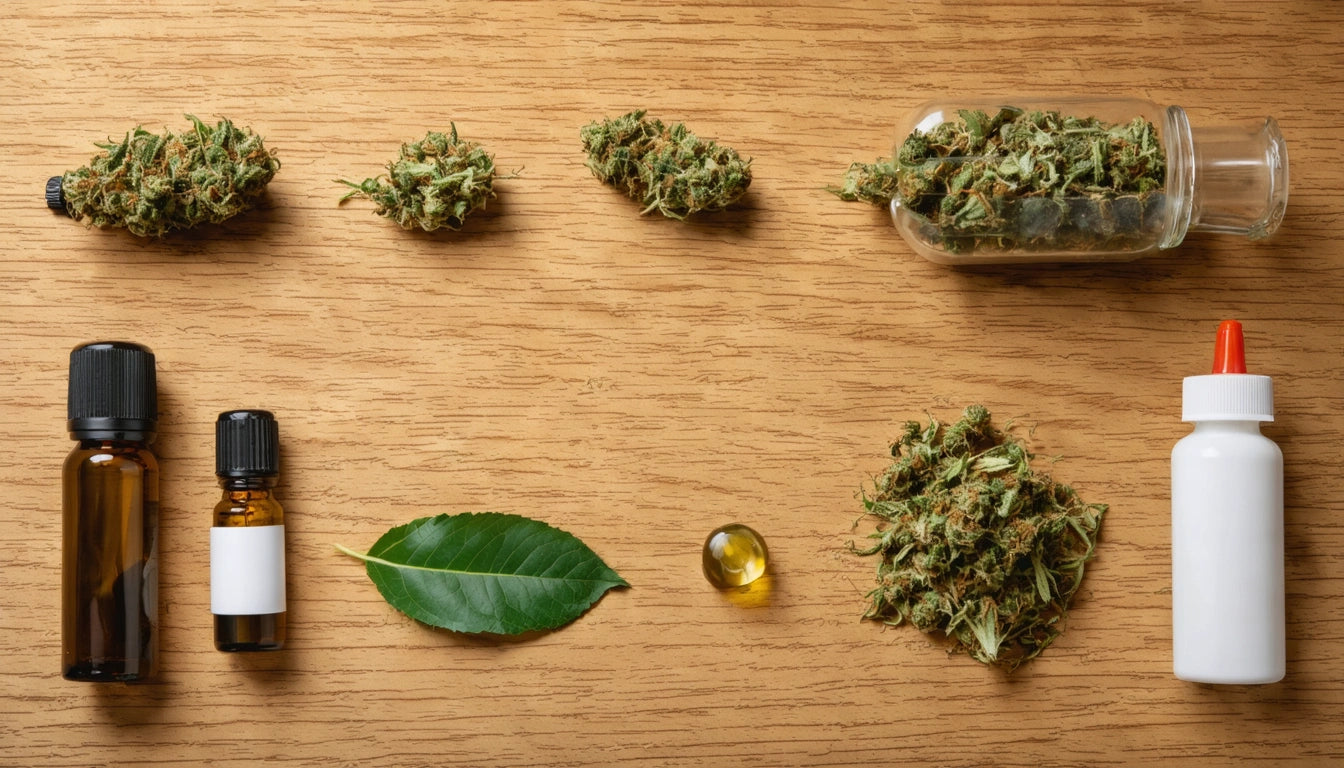- Federal vs. State Law: Understanding the Conflict
- Form 4473 and Its Implications for Medical Marijuana Patients
- Can You Have a Medical Marijuana Card and Concealed Carry Permit?
- State-by-State Variations in Enforcement
- Legal Risks and Considerations for Gun Owners
- Practical Guidance for Medical Marijuana Patients Who Own Firearms
Navigating Gun Ownership and Medical Marijuana: What You Need to Know
The intersection of medical marijuana use and gun ownership creates a complex legal landscape that affects millions of Americans. As medical cannabis programs expand across the country, many patients find themselves wondering: can you have a medical marijuana card and concealed carry permit simultaneously? The short answer is complicated by the conflict between state and federal laws.
Federal vs. State Law: Understanding the Conflict
At the heart of this issue lies a fundamental conflict between state and federal regulations. While many states have legalized medical marijuana, cannabis remains classified as a Schedule I controlled substance at the federal level. This classification creates significant complications for gun ownership.
Under federal law, specifically the Gun Control Act of 1968, it's illegal for an "unlawful user of or addicted to any controlled substance" to possess firearms or ammunition. Since federal law considers all marijuana users unlawful users of a controlled substance, regardless of state legalization, this creates a direct conflict for medical marijuana patients who wish to purchase or possess firearms.
Form 4473 and Its Implications for Medical Marijuana Patients
When purchasing a firearm from a federally licensed dealer, prospective buyers must complete ATF Form 4473. Question 21.e on this form specifically asks if the buyer is "an unlawful user of, or addicted to, marijuana or any depressant, stimulant, narcotic drug, or any other controlled substance."
The form includes a warning that clarifies: "The use or possession of marijuana remains unlawful under Federal law regardless of whether it has been legalized or decriminalized for medicinal or recreational purposes in the state where you reside."
Answering "yes" to this question results in an automatic denial of the firearm purchase. Answering "no" while being a medical marijuana cardholder could potentially constitute perjury, a federal offense punishable by up to 10 years in prison.
Can You Have a Medical Marijuana Card and Concealed Carry Permit?
The question "can you have a medical card and a concealed carry permit?" has no simple answer. Concealed carry permits are issued by states, and some states don't cross-check their medical marijuana registry with their concealed carry database. However, possessing both simultaneously puts individuals in a legally precarious position under federal law.
As explained in our guide on medical marijuana card eligibility and implications, having a card creates a documented record of your status as a cannabis user, which could potentially be used as evidence in federal firearms cases.
State-by-State Variations in Enforcement
Enforcement of these conflicting laws varies significantly by state:
- Pennsylvania: The state police have stated they won't deny concealed carry permits based solely on medical marijuana card status.
- Hawaii: In 2017, authorities demanded medical marijuana patients surrender their firearms, though this policy was later reversed after public backlash.
- Florida: As detailed in our article on Florida's medical marijuana regulations, the state doesn't explicitly prohibit cardholders from owning guns, but federal law still applies.
The inconsistency in enforcement creates confusion for patients trying to understand if they can buy guns with a medical card or maintain their current firearms while participating in their state's medical marijuana program.
Legal Risks and Considerations for Gun Owners
Medical marijuana patients who own firearms should be aware of several key considerations:
First, private gun sales, while not requiring Form 4473, don't exempt buyers from federal prohibition. The law prohibits unlawful users of controlled substances from possessing firearms regardless of how they were acquired.
Second, crossing state lines with both cannabis and firearms could trigger additional federal charges, even when traveling between states where both are legal. This is particularly important for patients who may be eligible for out-of-state medical marijuana access.
Third, proper storage is crucial. For those who maintain both cannabis and firearms in their home, using secure storage solutions like humidity control packs for cannabis preservation and separate, locked storage for firearms can help demonstrate responsible handling of both.
Practical Guidance for Medical Marijuana Patients Who Own Firearms
For individuals navigating this complex legal landscape, several approaches may help mitigate risk:
- Consult with an attorney: Laws in this area are evolving, and a lawyer specializing in both cannabis and gun laws can provide personalized guidance.
- Know your state's specific regulations: As outlined in our guide on qualifying for a medical marijuana card, requirements and implications vary by state.
- Consider timing: Some patients choose to temporarily let their medical marijuana card lapse when purchasing firearms to avoid the Form 4473 conflict.
- Stay informed: Court challenges to these conflicting laws continue, and policy changes may occur as more states reform their cannabis laws.
The question "can you conceal carry with a medical card?" ultimately depends on one's risk tolerance for operating in this gray area of conflicting state and federal laws. Similar considerations apply to those wondering if you can get a gun with a med card or maintain firearms you already own.
For those with professional licenses or certifications, additional complications may arise. For instance, our article on CDL licenses and medical marijuana cards explores similar conflicts between state and federal regulations.
Until federal law changes, medical marijuana patients who own firearms will continue to face this challenging legal contradiction. As cannabis reform progresses nationally, resolution of these conflicts may eventually emerge through legislative or judicial action.











Leave a comment
All comments are moderated before being published.
This site is protected by hCaptcha and the hCaptcha Privacy Policy and Terms of Service apply.